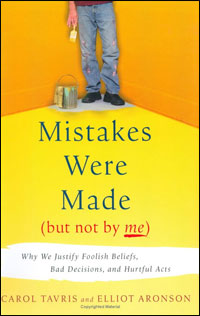I read an essay the other day suggesting that, while Christians talk about loving the sinner, hating the sin... when it comes to homosexuality, in practice they often hate the sinner, too. The author gives examples of the particular disgust shown for homosexuals above exponents of other sins. I enjoyed reading the article (while disagreeing with several points), and it got me thinking. Other immoral or sinful behaviour doesn't elicit such disgust. Is this a case of double-standards? Jesus railed on hypocrisy much more than he talked about homosexuality.
First, homosexuality is disgusting just as genuine sex is attractive. I can't explain why either is the case, we're built that way. Some may say it's just my perspective or preference. I believe God made it that way. Sex is good and attractive, and a perversion of it is repulsive.
Other sins may not provoke the same emotional reaction, but it is instructive to consider how we do respond. A man who keeps his life in sound balance and cares for his family wins my admiration. One who becomes alcoholic and lets his family down - I pity. It's a different emotional response from disgust... in me. Honesty wins respect, hypocrisy or lying earns distrust and a whole different flavour of disdain.
My emotional reaction to the bad may well be the opposite (or in stark contrast) to my response to the corresponding good. It then follows that where one becomes ambivalent about the Godly design of sex, there will be no strong reaction to the perversion of it.
Emotions are far from any guarantee of a balanced response. But they are part of being human, and often they get us to an appropriate response faster than our intellect can fully analyse the facts. Emotions depend largely on our conditioning. So the way we condition our minds is likely to be reflected in our emotional response to both good and bad.
Jesus responded with compassion at times, and at other times approached people with anger (Mark 3). Emotion can form part of our full appreciation of the situation and can add some zing to our response. If you are conditioned to a Godly design of sex, then you may well consider homosexuality disgusting.
Of course, to genuinely help people, emotions must be kept in check. A group of likeminded people can get carried away with a common emotional response. A group of Christians may be over-the-top in their disgust of homosexuality. As in all things, a balance is needed. Wishing injury or disease on homosexuals is also a perversion. However, I consider it sound to strongly dislike the practice and promotion of homosexuality because I care about the way God designed life and sex.
Often when we see homosexuals on TV, they are flaunting this perversion. There is an exaggerated gay walk and talk. Why is that? - if not for marketing and brand-recognition. When an alcoholic is portraited in a film, he is likely to be a sad case in need of help. But homosexuality is likely to be celebrated in modern media. This is particularly galling.
In contrast, when I work with others who are homosexual, there is no problem. We co-operate in meetings and projects. This is where it makes more sense to speak of loving the sinner, hating the sin.

















